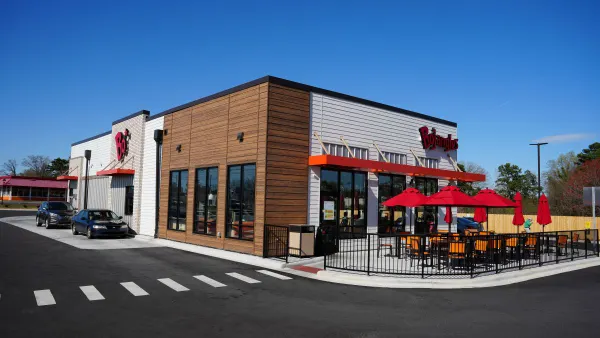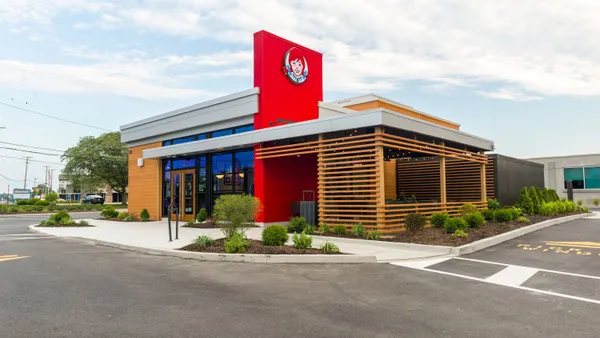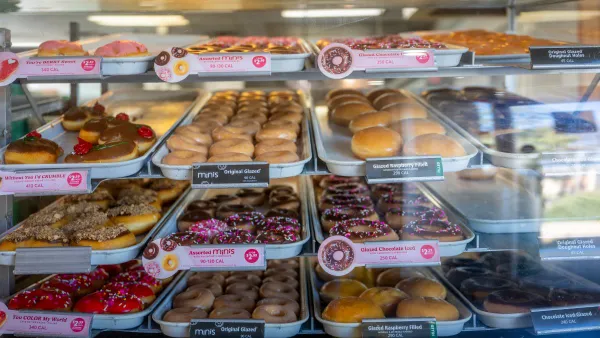Dive Brief:
- During Domino's Q4 earnings call Thursday, executives touted the chain's continued digital efficiencies, including GPS technology, its new Pie Pass program, autonomous delivery tests and "Dom" order taking via an AI assistant.
- On the call, CEO Ritch Allison noted that the chain's technology has helped drive efficiencies and profitability for franchisees navigating a tight labor market.
- Despite such pressures, Domino's continues to grow and fortress its markets, opening over 1,000 new stores domestically in the past five years alone.
Dive Insight:
With the type of throughput Domino’s has, and the cost pressures from rising wages, it's critical to maximize labor efficiencies. To try and tackle these issues, the company recently rolled out its Domino's Tracker GPS system to reduce delivery times. Not only does this feature allow customers to track their orders and receive an estimated delivery time, it also allows managers to view where their delivery drivers are to adjust in-store logistics if necessary.
So far, franchisee feedback has been positive because "it is helping them to better manage what is a really complex process around getting food out of the store and to customers," Allison said. It has also reduced turn times.
Additionally, Domino's has been testing AI-based labor scheduling algorithms. The purpose, according to Allison, is to "make sure we are using the right number of hours in each of our stores." He added that there is a lot of inefficiency in the system now, so a positive test here could have wider rollout implications.
Domino's is no stranger to digital innovation, and the company has leaned into its reputation of being a tech company that happens to sell pizza. It's also a big reason the company has generated 35 straight quarters of U.S. same-store sales increases and continues to gobble up market share in the competitive pizza space.
The company's new Innovation Garage, which is focused on piloting new technologies, should enable even more growth here.
"With our Innovation Garage … we're looking at every aspect of how we set up and operate our stores because it is a game of steps and pennies and seconds and we're trying to focus on all those as we look for ways to help our operators be successful," Allison said during the call.
Of course, Domino’s is not alone in leveraging GPS. Papa John's added GPS tracking to over 1,000 restaurants nationwide during the summer. It's also not the only chain experimenting with AI to maximize its labor pool. Outback is testing such a system that captures employee and customer interactions to gauge wait times and experiences.
For Domino's, franchisees are asking for this type of technology to help ease their pressures and enable efficiencies to grow profitably, Allison said.
Don't expect this focus on labor to go away, either. The company said it is ramping up its emphasis on service in 2020, which includes "doubling down" on training and a continued rollout of technology.
As part of that focus, the company is also mulling pre-folding pizza boxes, which isn't done in over 1,000 international units. This "requires a pretty decent amount of labor in the store," Allison said. It is also looking at back-of-the-house setup, including how equipment is positioned in its stores and how stores prepare for the dinner rush.
"We're breaking down every aspect of the operation to try to find opportunities for efficiency, because we know that labor costs are only going up over time," he said.
Improving operational efficiency not only reduce labor costs, but also result in better service, he said.
"So there is a win-win there on having the right number of team members in the store at the right time," Allison said.












